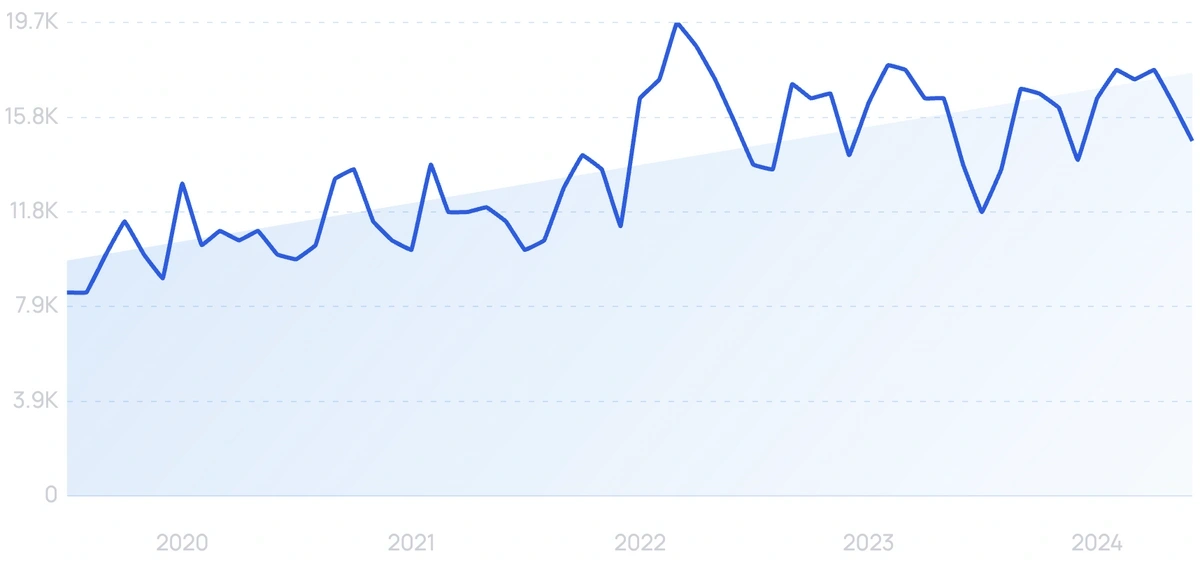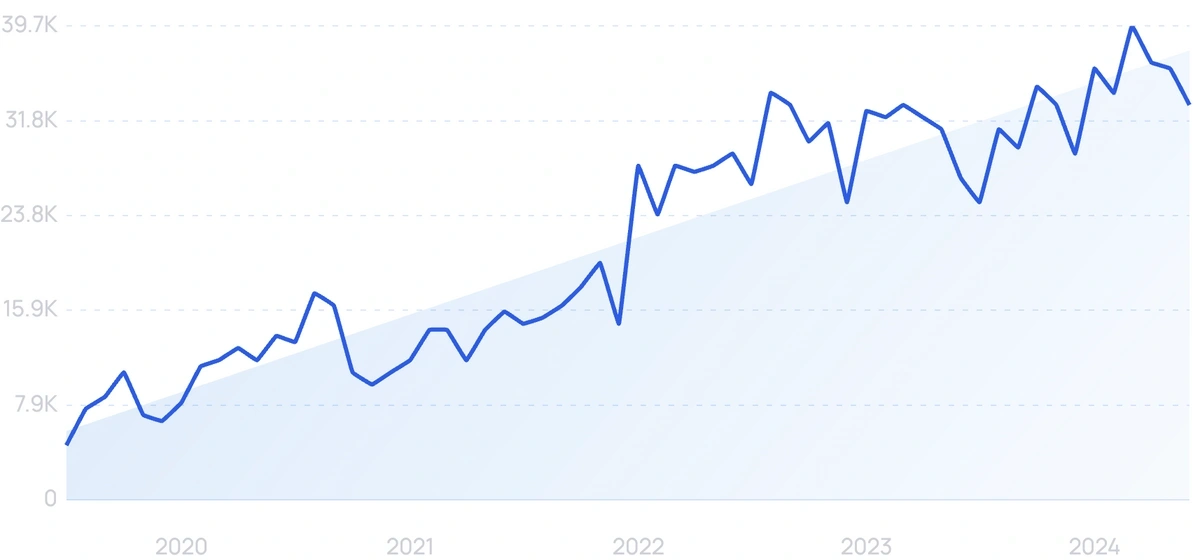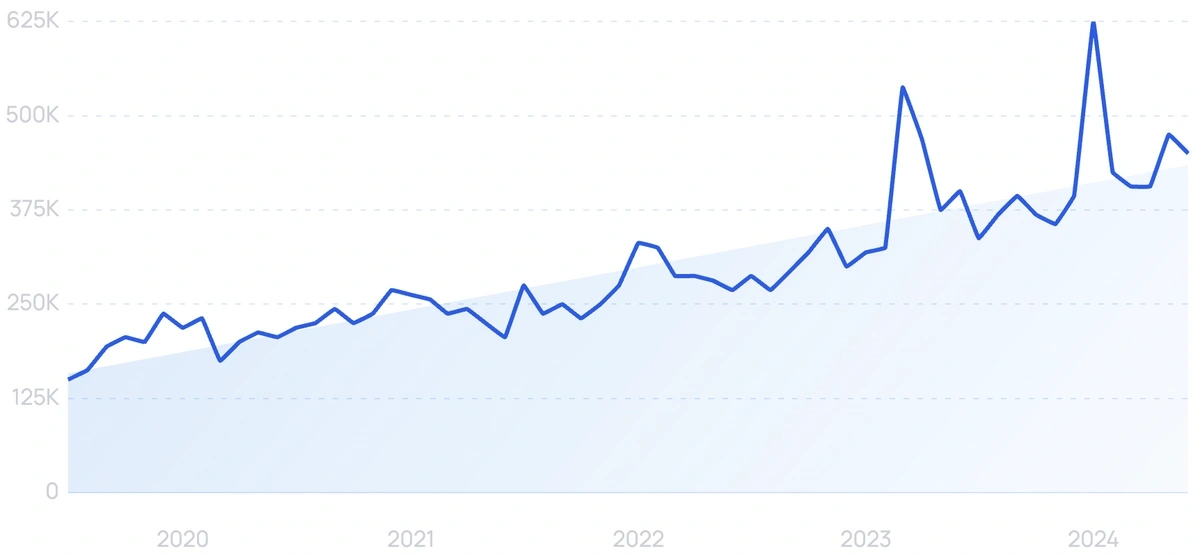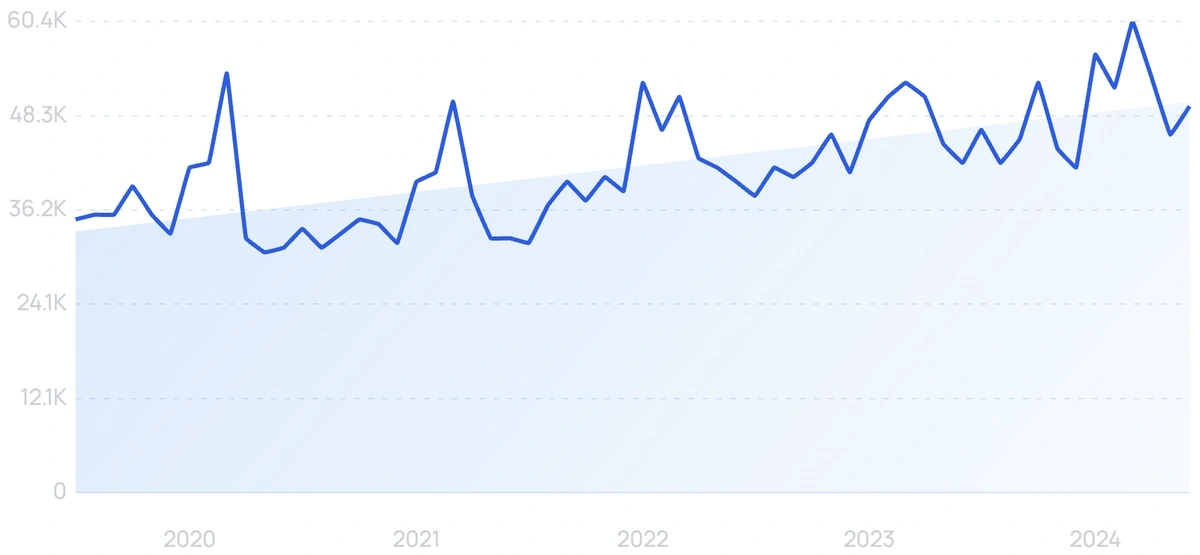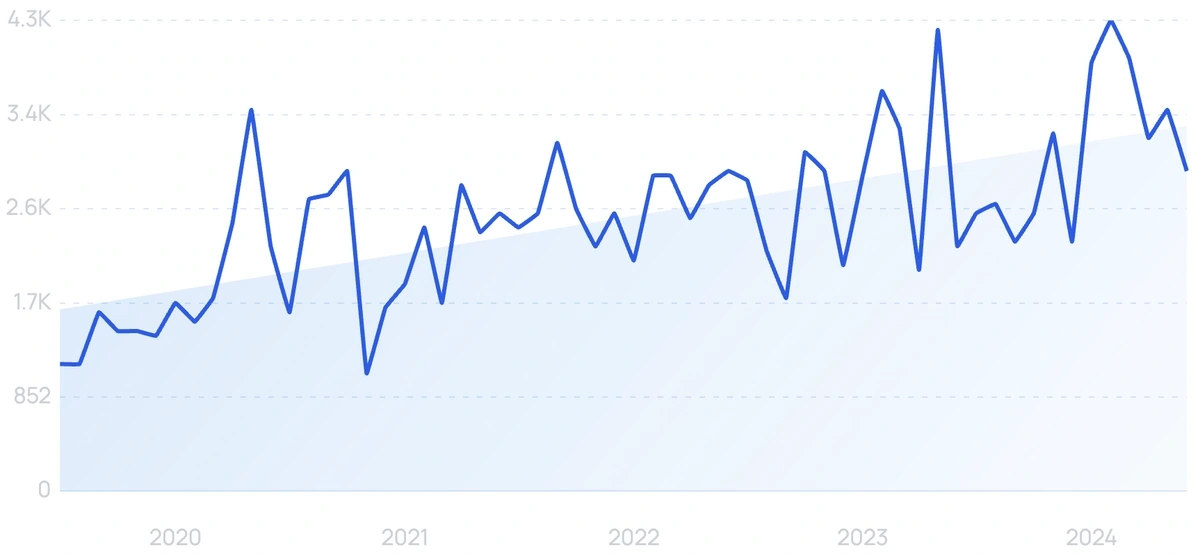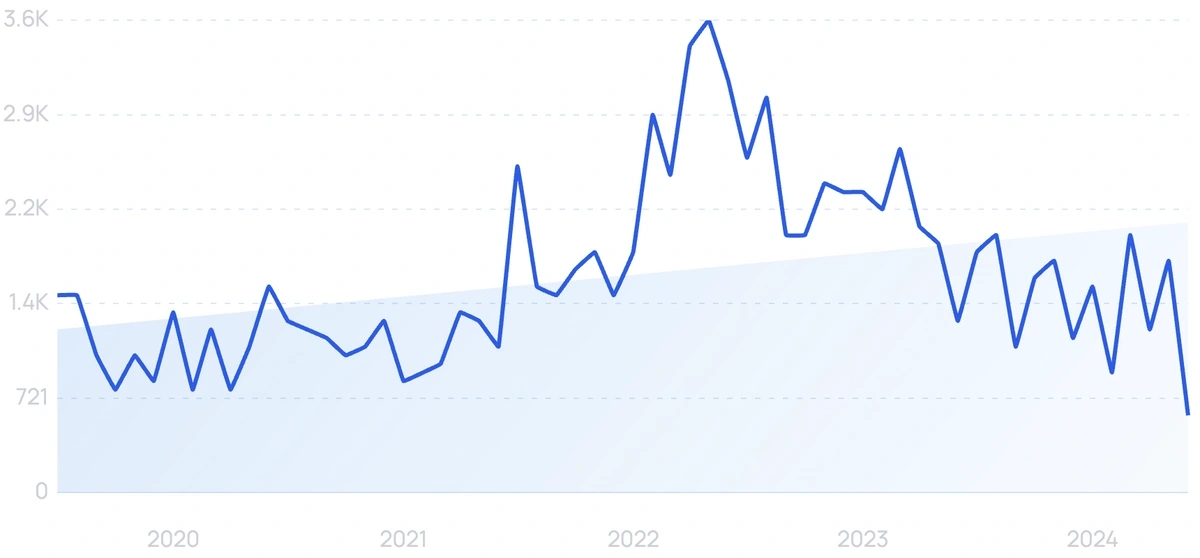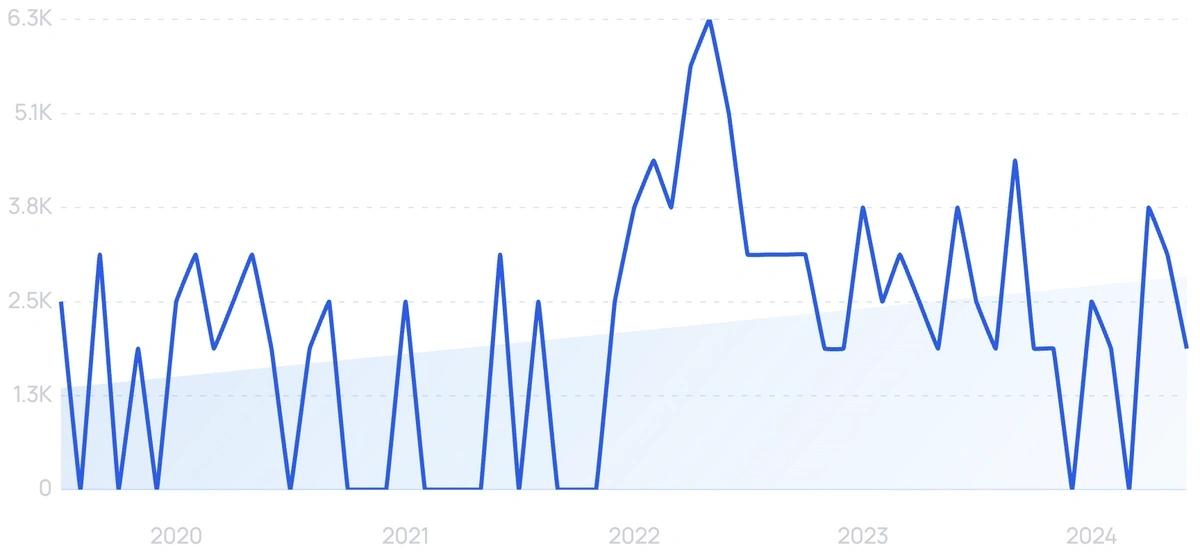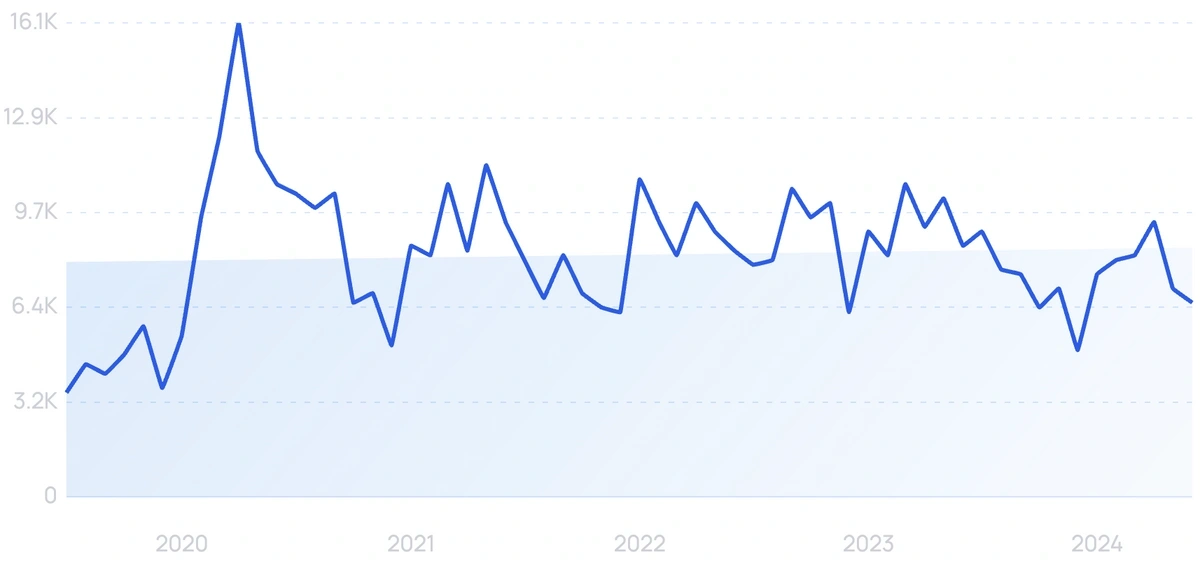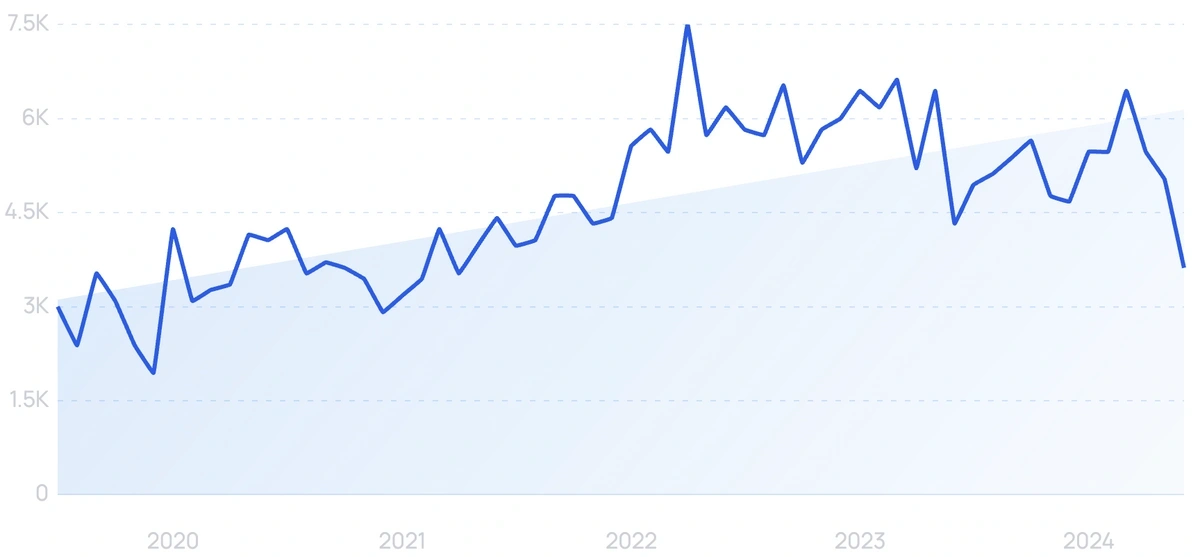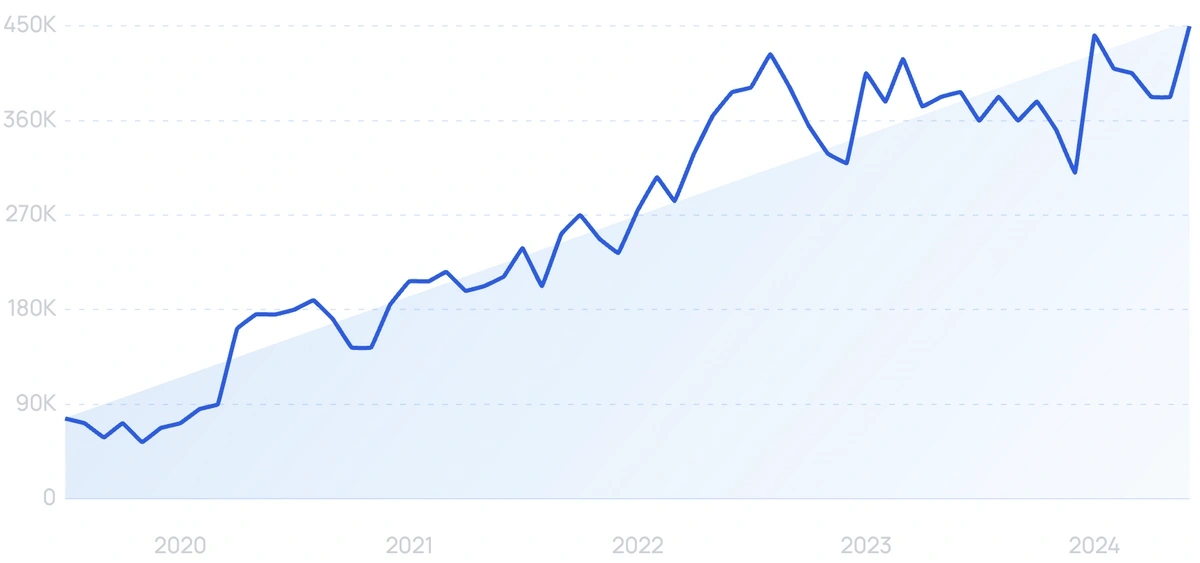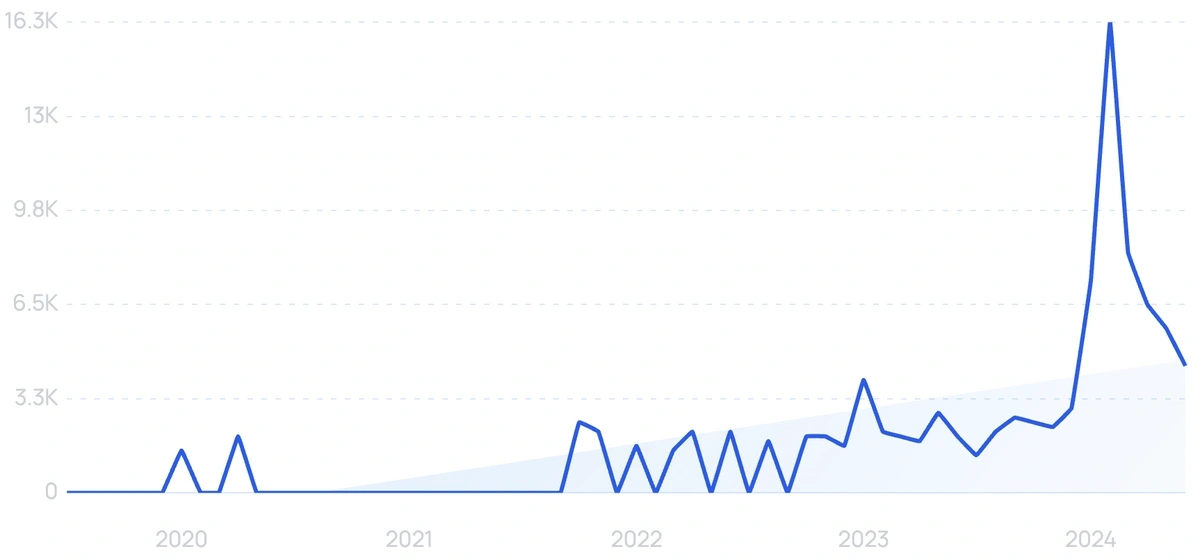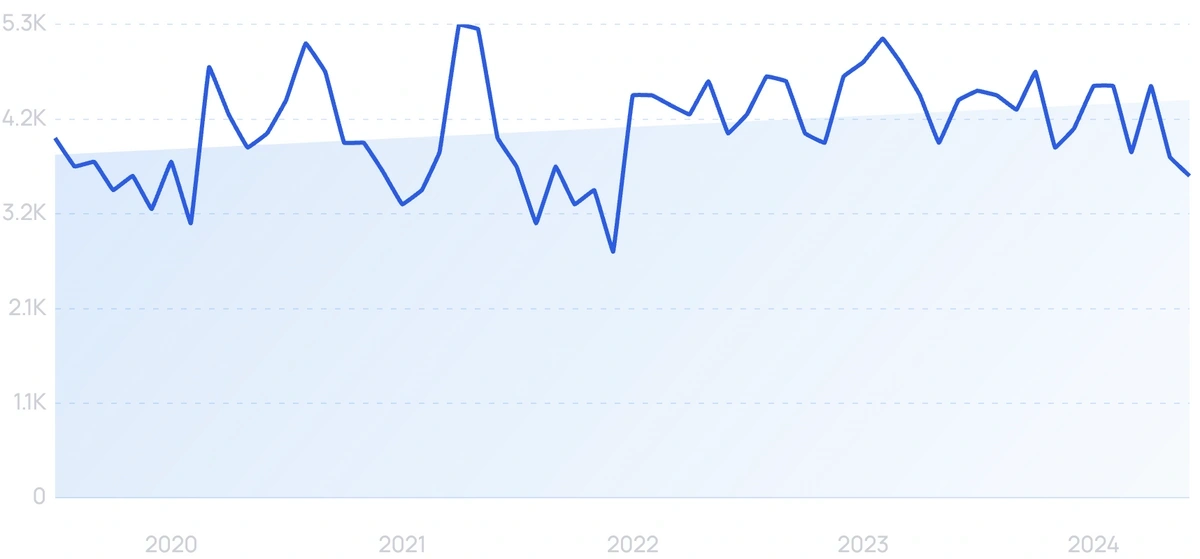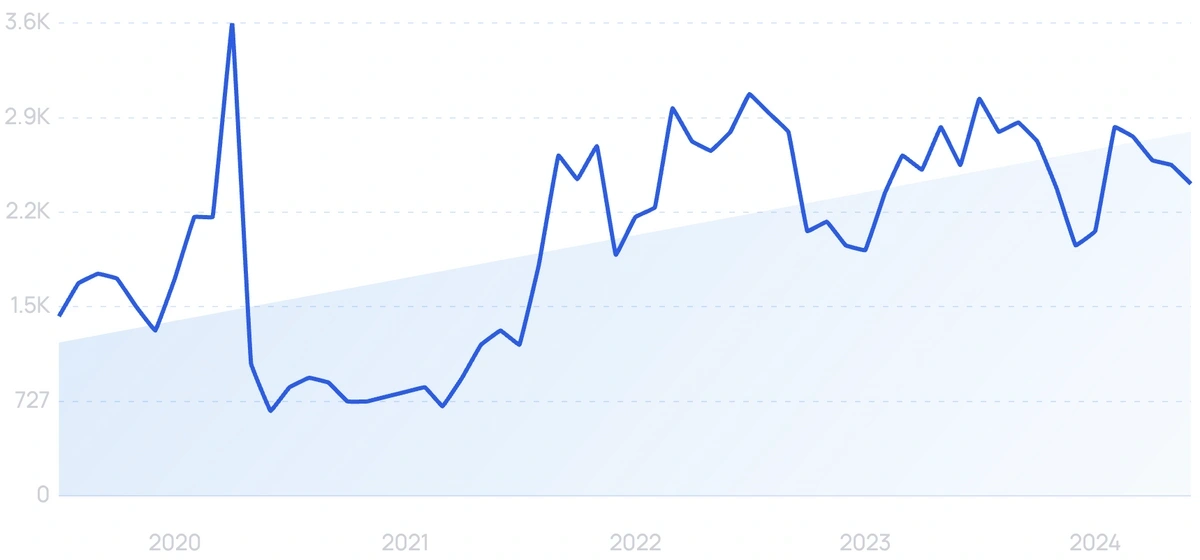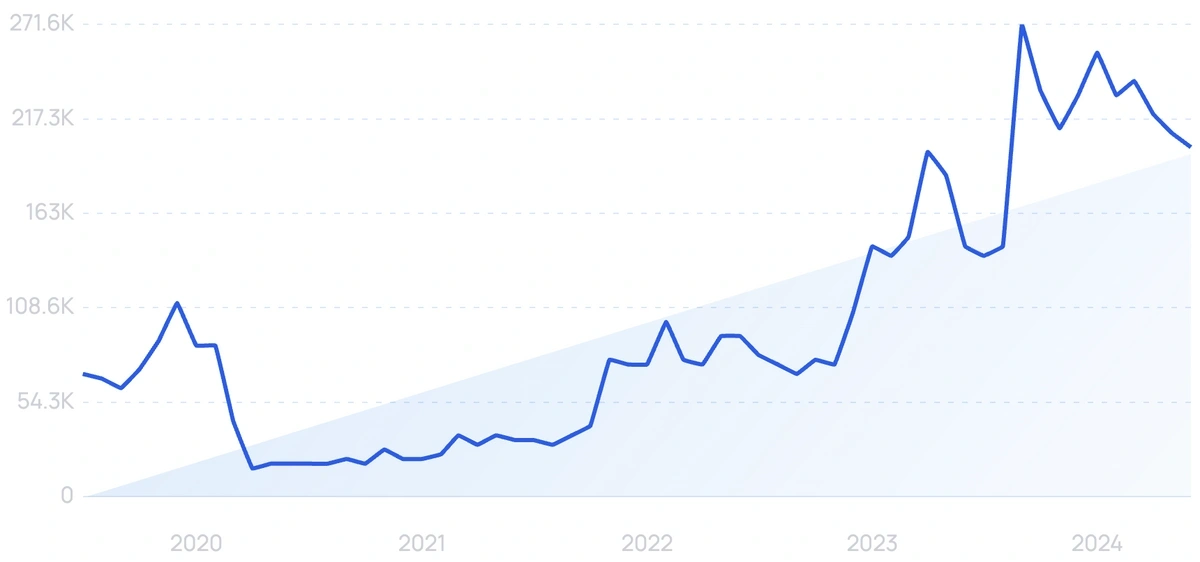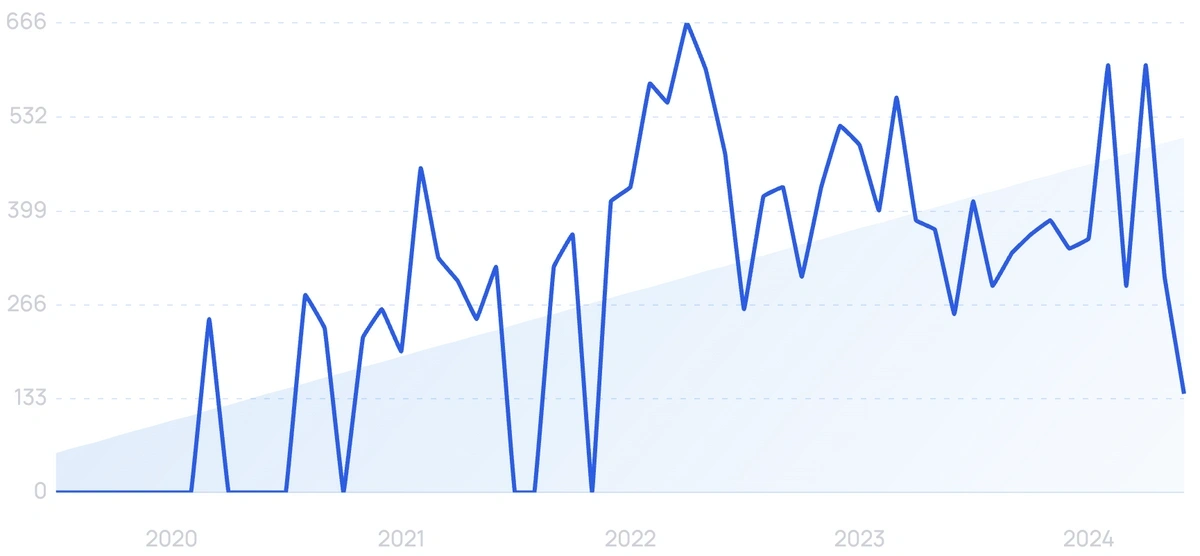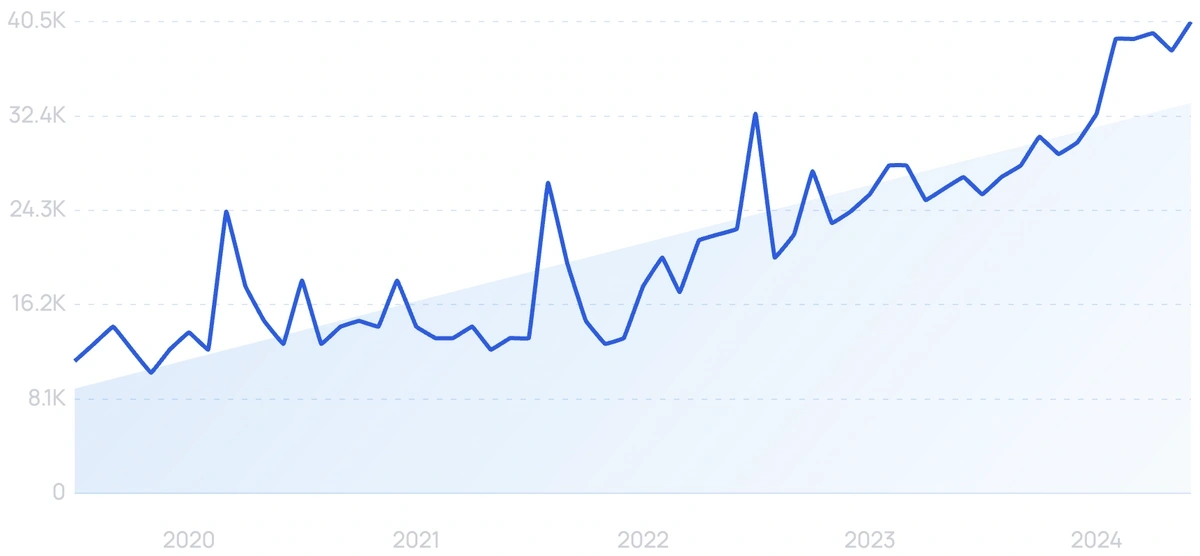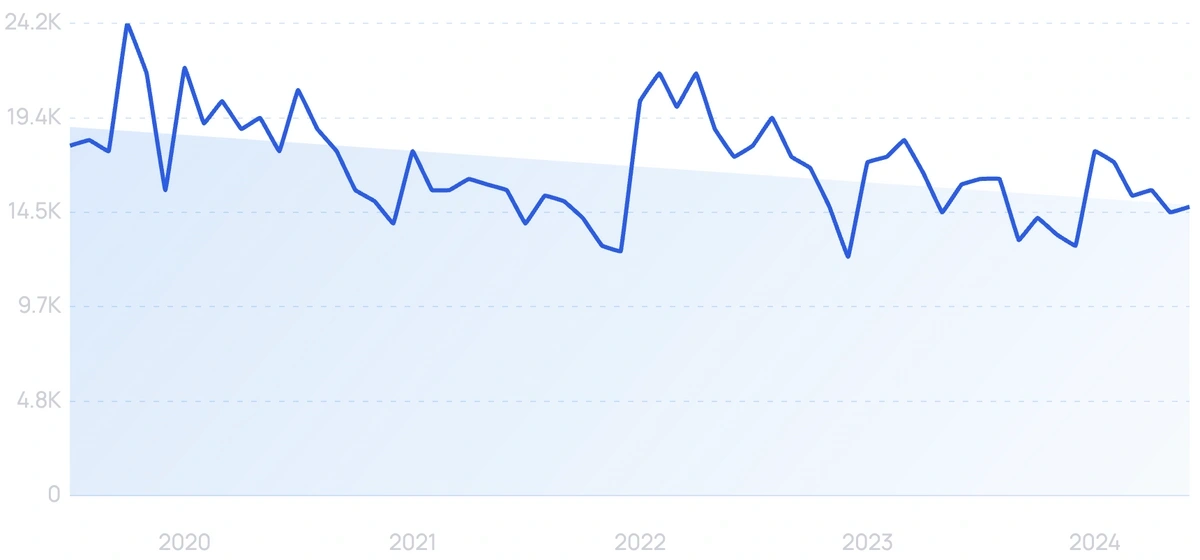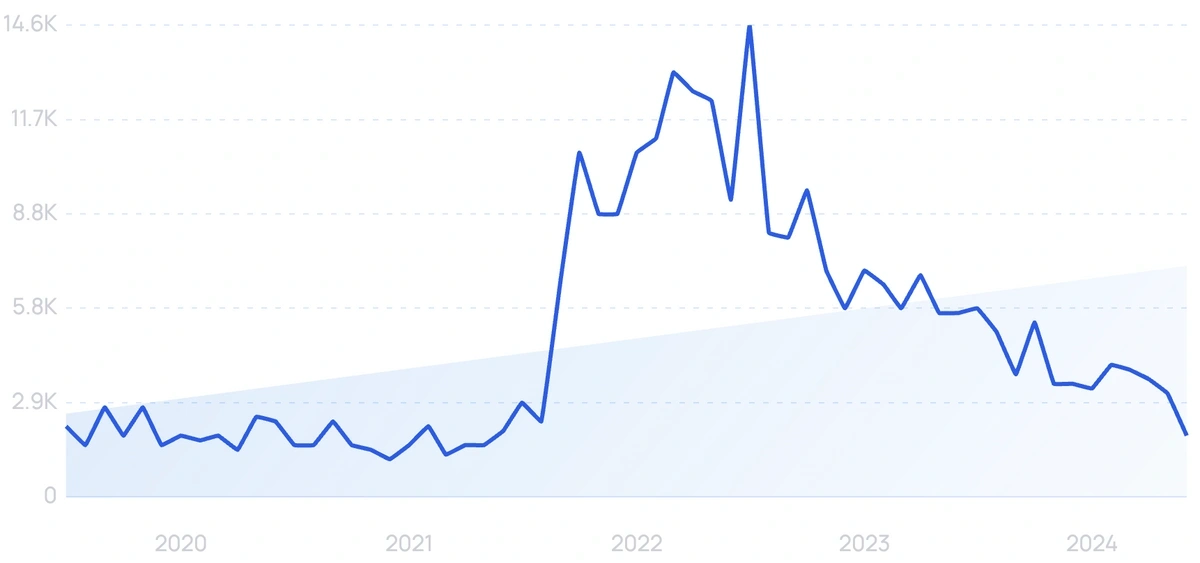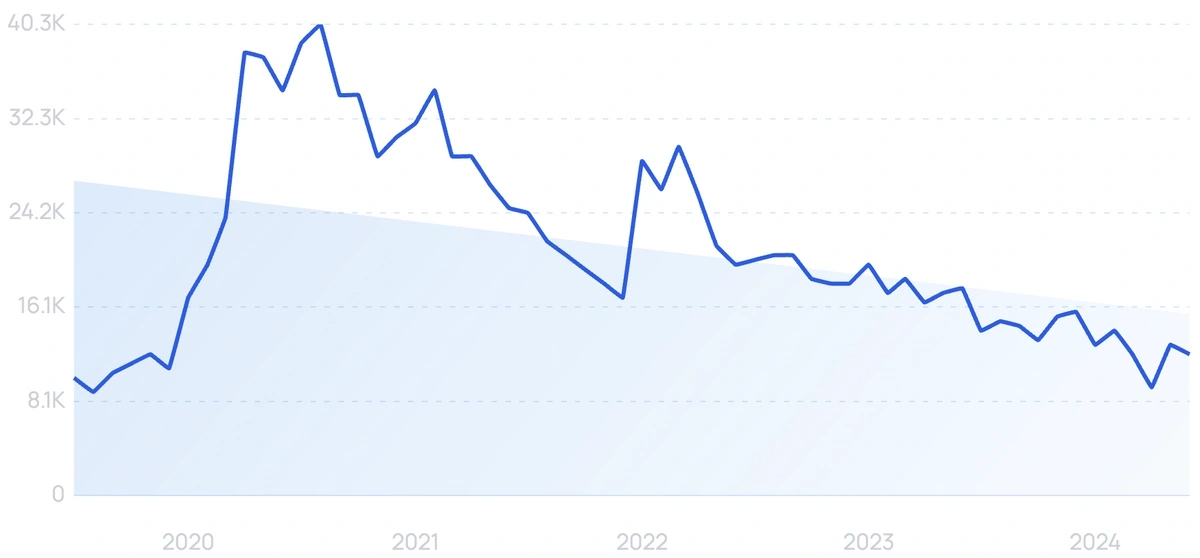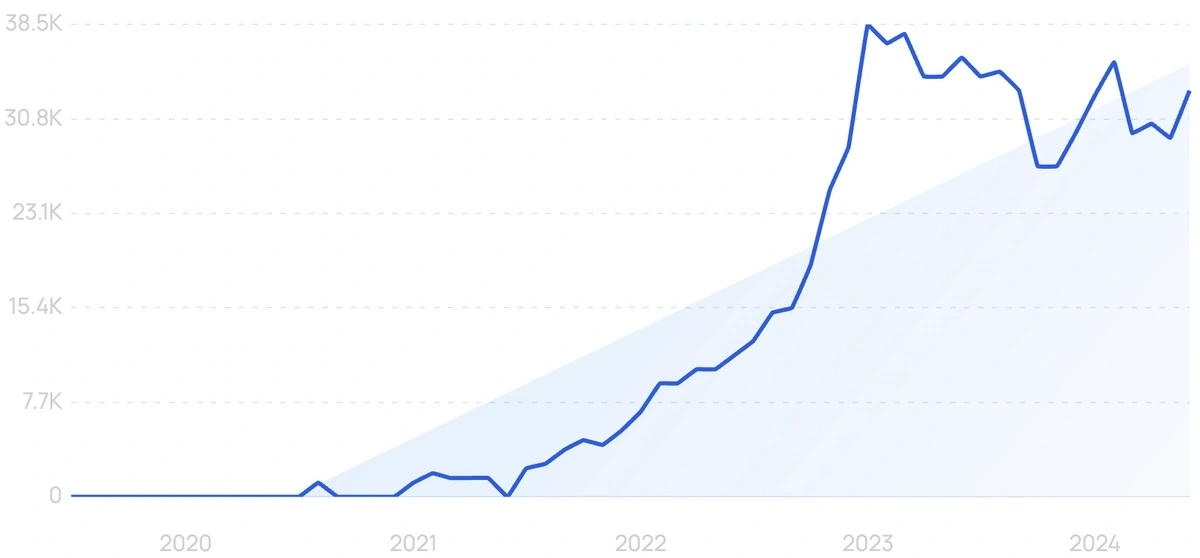Get Advanced Insights on Any Topic
Discover Trends 12+ Months Before Everyone Else
How We Find Trends Before They Take Off
Exploding Topics’ advanced algorithm monitors millions of unstructured data points to spot trends early on.

Keyword Research
Performance Tracking
Competitor Intelligence
Fix Your Site’s SEO Issues in 30 Seconds
Find technical issues blocking search visibility. Get prioritized, actionable fixes in seconds.
Powered by data from
20 Growing Mental Health Companies & Startups In 2024
You may also like:
- Top 7 Health & Wellness Trends
- 20 Health and Wellness Companies & Startups on the Rise
- 8 Massive Fitness Industry Trends
Today, more than 1 in 5 US adults live with a mental illness. And 1 in 25 US adults live with a more serious serious mental illness, like major depression.
Because of this, it's become increasingly difficult for people to get the help they need. Which is why the mental health industry has grown so quickly.
In fact, revenue in the global mental health industry is expected to reach $38.4 billion in 2024. However, growth rates indicate things may be slowing down, with a 0.60% CAGR until 2029.
Although the market looks like it could remain steady for the coming years, plenty of mental health startups are still popping up. Let’s take a look at some players who could make an impact in this critical space.
1. Modern Health
5-year search growth: 74%
Search growth status: Regular
Year founded: 2017
Location: San Francisco, CA
Funding: $167.4M (Series D)
What they do: Modern Health is a B2B app for employers that want to offer their employees therapy, coaching, and educational content. Coaches and therapists are available in over 50 languages and use evidence-based techniques with members. 75% of engaged app users have reported that the program helps them maintain and improve their well-being.
2. Lyra Health
5-year search growth: 622%
Search growth status: Exploding
Year founded: 2015
Location: Burlingame, CA
Funding: $910.1M (Series F)
What they do: Lyra Health is a B2B company that provides mental healthcare services to employees. Offering a curated network of therapists and coaches, the startup reports a 10x utilization over traditional Employee Assistance Programs (EAPs), as well as over a $2K per member annual reduction in healthcare claims costs.
3. Kintsugi
5-year search growth: 200%
Search growth status: Exploding
Year founded: 2019
Location: Berkeley, CA
Funding: $30.9M (Series A)
What they do: Kintsugi is a platform for health systems, payors and providers that screens speech clips for depression and anxiety. Currently available in 250+ cities around the world, the startup offers a talk therapy app that utilizes its proprietary KiVA (Kintsugi Voice Biomarker API) technology to detect mental health conditions as well as other health markers, such as sleep quality, nutrition and emotional triggers.
4. Spring Health
5-year search growth: 41%
Search growth status: Regular
Year founded: 2016
Location: New York, NY
Funding: $366.5M (Series Unknown)
What they do: Spring Health is a B2B mental health startup specifically focused on employee wellbeing. Using machine learning, the company is able to match employees with a care plan that meets their needs. In addition to a care plan, employees have access to a Care Navigator who can offer support through difficult times.
Based on Spring Health’s existing clients including Equinox, Instacart and more, 30% of all employees sign up for the program and can recover half a day of productivity each week.
5. Meru Health
5-year search growth: 152%
Search growth status: Regular
Year founded: 2016
Location: San Mateo, CA
Funding: $53.3M (Grant)
What they do: Meru Health is a digital mental health platform that treats people with depression. The startup offers two programs: a 12-week treatment program consisting of therapist and psychiatrist support, a peer support group, meditation practices and a biofeedback device, and a health coaching program consisting of on-demand coach chatting, educational content to reduce stress.
Based on one study, 75% of program participants saw a reduction in depression and anxiety symptoms after completing the program.
6. NUE Life Health
5-year search growth: -61%
Search growth status: Peaked
Year founded: 2020
Location: Mami, FL
Funding: $28.2M (Series Unknown)
What they do: NUE Life Health is a mental wellness company that offers ketamine therapy to treat mental health disorders including depression, anxiety and PTSD. According to the homepage, the startup has helped deliver over 22.5K treatments to date. Pricing ranges from $1,250 for a 1-month subscription to $2,750 for a 4-month subscription.
7. Iris Telehealth
5-year search growth: -25%
Search growth status: Regular
Year founded: 2013
Location: Austin, TX
Funding: $40M (Series B)
What they do: Iris Telehealth is a telepsychiatry platform that provides services to mental health centers and hospitals. Psychiatrists or Psychiatric Nurse Practitioners employed by Iris conduct telemedicine visits or in-person care as needed. The startup has had over 1.5M patient encounters, with a 97% average patient satisfaction rating.
8. Unmind
5-year search growth: 86%
Search growth status: Regular
Year founded: 2016
Location: London, England
Funding: $63.1M (Series B)
What they do: Maintaining mental health in the workplace is often overlooked, but Unmind is one platform that is doing something about it. This startup offers employers mental health and well-being tools, training, and scientifically backed assessments to teach employees about various mental health topics through audio, video, and interactive content.
Unmind has more than 2.5 million users in 110 countries.
9. Eleanor Health
5-year search growth: 21%
Search growth status: Regular
Year founded: 2019
Location: Waltham, MA
Funding: $82M (Series C)
What they do: Eleanor Health is a comprehensive, in-person, and digital mental health provider for mental health and addiction recovery. Currently available in 6 states, the company offers a variety of programs, including medication-assisted treatment, therapy, psychiatry, addiction recovery coaching, telehealth visits, and supporting a loved one with an addiction.
10. BetterHelp
5-year search growth: 488%
Search growth status: Exploding
Year founded: 2013
Location: San Francisco, California
Funding: $4.5M (Acquired)
What they do: BetterHelp is an online therapy platform that connects patients with professional psychologists, social workers, therapists, and counselors. New BetterHelp users select their type of therapy and fill out a questionnaire to get matched with a therapist within 24 hours. In 2022, BetterHelp generated over $1 billion in revenue from 1 million users.
11. Alto Neuroscience
5-year search growth: 2,600%
Search growth status: Peaked
Year founded: 2019
Location: Los Altos, CA
Funding: $284.3M (Series Unknown)
What they do: Alto Neuroscience develops psychiatric drugs used to treat mental health conditions. The startup aims to change the current drug development model, which does not consider that different people respond to the same drug differently. Thus, the team uses 10 years of data to match each Alto medicine with each patient, creating a better fit. Currently, the studies are focused on depression and PTSD, but will soon expand to other conditions.
12. Mantra Health
5-year search growth: -11%
Search growth status: Regular
Year founded: 2018
Location: New York, NY
Funding: $34.2M (Series A)
What they do: Mantra Health offers digital mental health services for university students. By partnering with each college’s campus counseling centers, students can access therapy, and resources to help foster positive lifestyle changes and medication.
Patient outcomes have shown clinical improvement exceeding industry standards within 4 weeks of treatment, and even more pronounced improvement after 12 weeks of treatment.
13. Concert Health
5-year search growth: 74%
Search growth status: Regular
Year founded: 2016
Location: San Diego, CA
Funding: $56.5M (Series B)
What they do: Concert Health is a behavioral health medical group that helps providers and health plans integrate behavioral health into their services. Patients meet with a Behavioral Care Manager (BCM) to set goals, receive counseling and monitor their treatment plan. Available in 12 states, the startup has helped over 24K patients get care.
14. Brightline
5-year search growth: 185%
Search growth status: Exploding
Year founded: 2019
Location: Palo Alto, CA
Funding: $212M (Series C)
What they do: Brightline is a virtual care platform that serves children, teens, and their families. Using the Connect app, families can find resources to support their kids, as well as on-demand messaging with coaches. Kids can also sign up for one-on-one coaching sessions to help them through stress, breakups, school, and more.
15. Hurdle
5-year search growth: 2,000%
Search growth status: Regular
Year founded: 2018
Location: Washington, DC
Funding: $5M (Seed)
What they do: Hurdle is a B2B startup that has developed an app to help employers find ways to manage stress. Employers complete a short form to register for therapy and can join sessions from their mobile device or computer. Hurdle emphasizes the importance of recognizing cultural differences and provides Culturally Intentional Therapy to meet the needs of people of color and minority groups.
16. Charlie Health
5-year search growth: 257%
Search growth status: Exploding
Year founded: 2019
Location: Bozeman, Montana
Funding: $850K (Seed Round)
What they do: In the US, 72% of the population lives in a mental healthcare provider shortage area. Charlie Health is tackling this problem by providing virtual intensive outpatient programs (IOP) to individuals struggling with mental health disorders like anxiety and depression.
Of the 20,000 clients that have used Charlie Health, 90% report improvements in their mental health symptoms.
17. Parsley Health
5-year search growth: -17%
Search growth status: Peaked
Year founded: 2016
Location: New York, NY
Funding: $36M (Series B)
What they do: Parsley Health is a primary care platform that offers treatment for a wide range of conditions and stages of life, ranging from mental health to digestion to pregnancy. A 12-month membership includes 5 visits with a clinician and 5 visits with a health coach, as well as other perks. 80% of members report feeling better within the first year, and 77% reduce their number of prescriptions.
18. Elemy
5-year search growth: -13%
Search growth status: Peaked
Year founded: 2019
Location: San Francisco, CA
Funding $323M (Series B)
What they do: Elemy is a platform that offers physician care to children who have behavioral challenges, including autism, ADHD, PTSD and more. Currently available in 13 states and 57 cities, the startup has reported that children who receive autism care for 6 months see an 80% improvement in behavior.
19. Meditopia
Search growth status: Peaked
Year founded: 2015
Location: Berlin, Germany
Funding: $18.3M (Series A)
What they do: Meditopia is a mental health platform focused on coaching and meditation. The app plays a large role in the user’s experience; today there are over 30M+ users in over 120 countries. After completing a mental health assessment, users are provided a personalized program accessible on the app, and can also choose to meet with a mental health coach.
20. Talkiatry
5-year search growth: 8,00%
Search growth status: Regular
Year founded: 2018
Location: New York, New York
Funding: $242M (Series C)
What they do: Talkiatry connects adults and adolescents with mental health professionals and licensed psychiatrists for virtual therapy sessions. Currently, the platform only accepts patients with in-network insurance plans to treat mental health conditions like depression, anxiety, and ADHD. In March 2024, the company reached 1 million patient visits since launching.
Conclusion
That wraps up our list of mental health startups that are showing great potential for continued growth in 2024.
One thing is clear: these companies are aiming to build better experiences for their patients. Through personalization and one-on-one connection with a therapist or coach, patients are more likely to feel more supported as they navigate the confusing waters that are mental health.
These startups are also leveraging more technology and AI to deliver more accurate diagnoses and longer-lasting clinical outcomes. From natural language processing to machine learning algorithms, the more data that startups collect, the more accurate their results will become.
Mental health has a huge ripple effect. To name just two effects: those with serious mental conditions are twice as likely to develop cardiometabolic diseases and depression and anxiety disorders result in $1T lost productivity every year worldwide.
With mental health having such a huge impact on healthcare costs, economic productivity and quality of life, it’s likely that more mental health startups will continue to spring up in 2024.
Stop Guessing, Start Growing 🚀
Use real-time topic data to create content that resonates and brings results.
Exploding Topics is owned by Semrush. Our mission is to provide accurate data and expert insights on emerging trends. Unless otherwise noted, this page’s content was written by either an employee or a paid contractor of Semrush Inc.
Share
Newsletter Signup
By clicking “Subscribe” you agree to Semrush Privacy Policy and consent to Semrush using your contact data for newsletter purposes
Written By


Josh is the Co-Founder and CTO of Exploding Topics. Josh has led Exploding Topics product development from the first line of co... Read more




